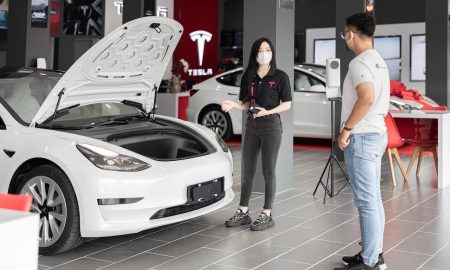
This Strategy Could Motivate You to Save More For Retirement

The focus of public attention is drawn to the current global health crisis that the thought of retiring seems to be in a dim and distant future. That is unsurprising and only natural, but our persistent concentration of prioritizing the present causes us to suspend our pursuit of a secure future. Here is why.

Retirement is still far and distant for most people’s mindset
In light of current events, here is a proposition for you: visualize going to dinner with your favorite person in your favorite dining spot, eating your favorite food, paired with your favorite beverage, and have the best dining experience. Now, choose between a $300 gift certificate to your favorite restaurant that you can claim today and be used as soon as the quarantine is lifted or a $600 gift certificate to the same place but you will receive it after 10 years. Which one would you choose?
A sound financial advisor would surely encourage you to choose the latter and will explain the benefits of delayed gratification. But right now, there is no financial advisor involved.
In this context, you are more likely to be expected to opt for the $300 gift certificate today because most people would choose it too! Why? Because everyone is dying to celebrate the end of the quarantine period and finally experience some sense of normalcy. And that isn’t nonsensical, it is normal. Your decision to go with $300 today makes you human. At the end of the day, your favorite restaurant might close down, rendering your gift certificate useless (if you chose the latter).

Visualize what you want to be doing in retirement
This tendency is a form of a cognitive bias that is called hyperbolic discounting in which people are inclined to choose a smaller yet sooner reward over a larger but delayed reward. This simply means that people generally want rewards sooner than later and this is represented in the proposition above where most of us would think that getting the reward ten years from now seems to be less attractive than the option that provides immediate reward.
That being said, hyperbolic discounting shifts from the theoretical and into reality when we view it within the context of saving for retirement. People’s excessive purchasing habits today are one manifestation of impulsive behavior where we choose immediate pleasure rather than delaying gratification for a more financially secure future. This is how our brains are biologically wired and as a result, we have a generation of retirees that failed to meet their retirement goals.

You may have to choose between immediate satisfaction or delayed gratification
So how do we solve this dilemma and rewire our brains to go against its default function for us to save more? Extensive research conducted by Hal E. Hershfield titled “Future self-continuity: how conceptions of the future self transform intertemporal choice” revealed that digitally changing images of the present-day participants and inferring what they might look like in the future could trigger positive alterations in saving behavior.
It is suggesting that the answer to the dilemma is to use our imagination; to create vivid images of an ideal retirement. For us to motivate ourselves into saving more, we should think about the quality of life we desire in the future and conceive a plan around those images to help us turn them into reality.
The extent of how detailed and positive these images are of our future selves will greatly increase our motivation to save more. Finally, whatever stage in your life you are in, consider employing your imagination to help you save more so you can attain your dream retirement.
More in Business & Finance
-
`
Why 50-Year-Olds Are Looking for a Career Change
In today’s fast-paced and ever-evolving job market, it’s not uncommon to see individuals in their 50s embarking on new career paths....
November 20, 2023 -
`
Why Mortgage Demand Is Crashing as Interest Rates Skyrocket
Imagine having a favorite local ice cream shop that suddenly jacked up its prices by 50%. You would probably think twice...
November 18, 2023 -
`
Santo Spirits | Sammy Hagar and Guy Fieri’s Joint Venture
In the world of entrepreneurial partnerships, some unions are destined for greatness. The unexpected alliance between Sammy Hagar, the iconic Van...
November 12, 2023 -
`
Branded Content: A Genuine Way to Connect With Your Audience
Have you ever binge-watched a series on Netflix, only to later realize that the beverage everyone’s sipping on is that brand...
November 3, 2023 -
`
Southwest Airlines Tackles Passenger and Labor Challenges
Southwest Airlines, a prominent player in the aviation industry, has found itself at a crossroads, facing a combination of passenger dissatisfaction...
October 28, 2023 -
`
Everything You Need to Know About Blended Interest Rates
Hou ever blended a smoothie and thought, “How on Earth do my strawberries, spinach, and protein powder come together to taste...
October 17, 2023 -
`
The Osbournes ‘Relaunch’ Podcast After 5 Year Break
If you were glued to your TV in the early 2000s, there is no way you missed the hilarious, raucous, and...
October 10, 2023 -
`
Tesla in China: Back-to-Back Price Drops, But No Sales Jump?
As temperatures soared in the summer of 2023, Tesla seemed to be heating things up in the Chinese market too. A...
October 6, 2023 -
`
Navigating Red Flags in the Workplace
In the journey of our careers, it’s not uncommon to encounter red flags in our jobs that signal potential issues or...
September 30, 2023















You must be logged in to post a comment Login